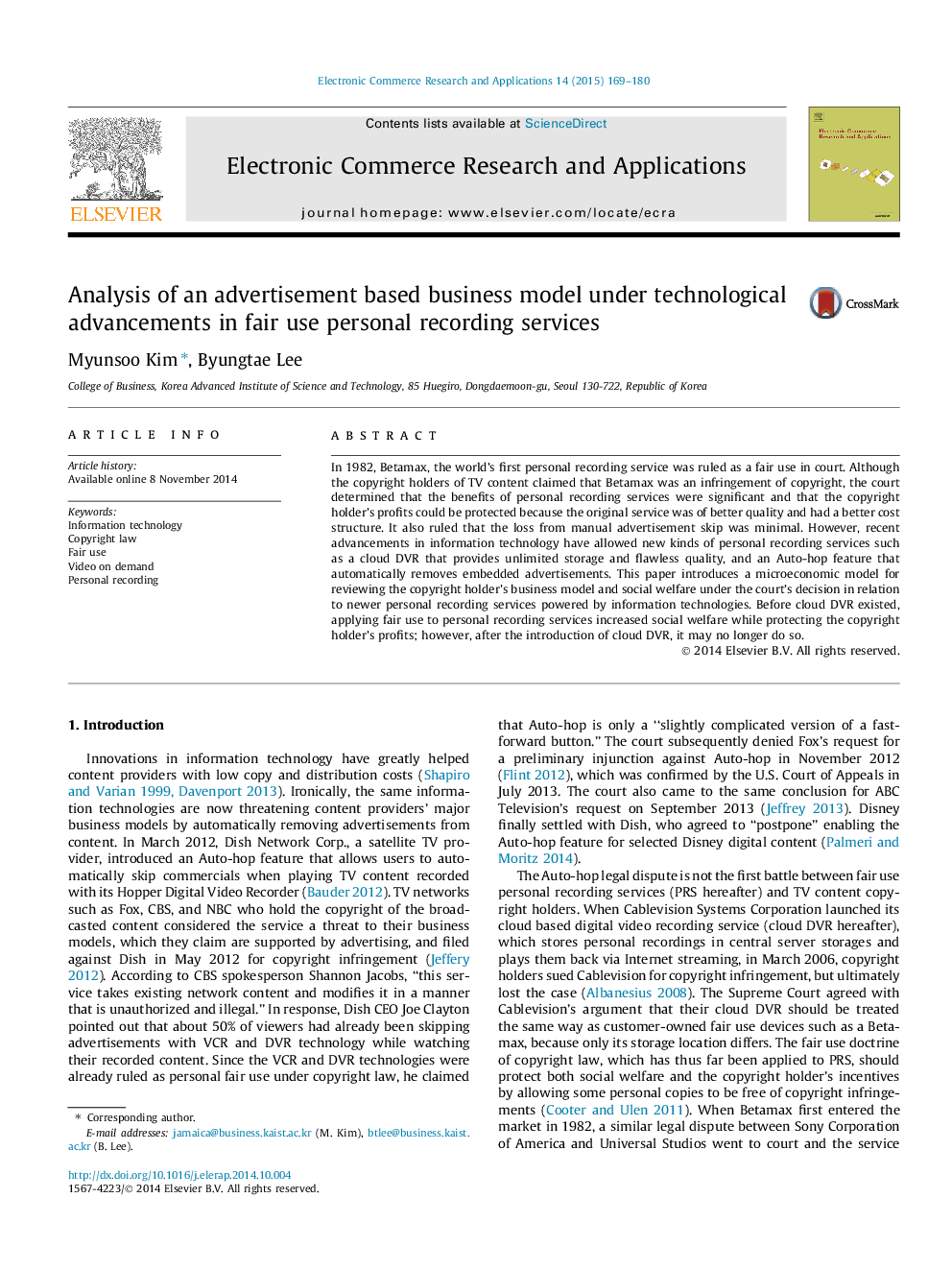| Article ID | Journal | Published Year | Pages | File Type |
|---|---|---|---|---|
| 379673 | Electronic Commerce Research and Applications | 2015 | 12 Pages |
•We model personal recording services of TV contents under the fair use doctrine.•We examine changes in IT about the copyright holder’s profit and the social welfare.•Before cloud DVR the copyright holder’s profit and the social welfare increased.•After cloud DVR the copyright holder’s profit and the social welfare decrease.•The court is advised to consider the recent IT when applying the fair use doctrine.
In 1982, Betamax, the world’s first personal recording service was ruled as a fair use in court. Although the copyright holders of TV content claimed that Betamax was an infringement of copyright, the court determined that the benefits of personal recording services were significant and that the copyright holder’s profits could be protected because the original service was of better quality and had a better cost structure. It also ruled that the loss from manual advertisement skip was minimal. However, recent advancements in information technology have allowed new kinds of personal recording services such as a cloud DVR that provides unlimited storage and flawless quality, and an Auto-hop feature that automatically removes embedded advertisements. This paper introduces a microeconomic model for reviewing the copyright holder’s business model and social welfare under the court’s decision in relation to newer personal recording services powered by information technologies. Before cloud DVR existed, applying fair use to personal recording services increased social welfare while protecting the copyright holder’s profits; however, after the introduction of cloud DVR, it may no longer do so.
